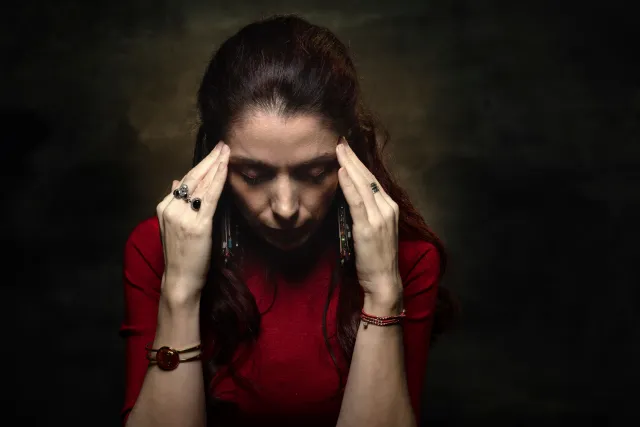
What is a Guardian Ad Litem (GAL)?

A Guardian Ad Litem (GAL) is either an attorney or other qualified professional, such as a mental health expert, appointed by the court to assist in domestic relations or custody cases involving a child's welfare.
In Georgia, a Guardian Ad Litem provides an independent assessment and a written recommendation to the court regarding custody, visitation, and other parenting issues. The GAL's findings often play an important role in shaping the court's ultimate custody orders.
A Guardian Ad Litem Georgia courts appoint is often referred to as a "legal GAL" or "GAL legal advocate" because they serve as the court's eyes and ears in understanding the circumstances of the children involved.
The Georgia Guardian Ad Litem Process

When Is a Guardian Appointed?
GALs are typically appointed by the court in child custody matters when there is serious disagreement regarding which parent would be the most appropriate custodian or primary caretaker for the child or children involved. Judges appoint a Guardian Ad Litem in Georgia when questions of neglect, abuse, or parental fitness arise.
For example, if one party alleges that the other party has sexually or physically abused the child. A GALs appointment will end at the conclusion of the case unless the court orders otherwise.
In many GAL Georgia cases, the court's decision to appoint a guardian ad litem helps ensure that the child's voice and interests are fully represented throughout the legal process.

Who May Serve as a Guardian?
The superior court judge may appoint any person to serve as the GAL as long as that person has received training administered or approved by the Child Advocate's Office. Uniform Superior Court Rule 24.9(1); O.C.G.A. 15-11-9(b).
This training should include, but not be limited to:
- recognition and assessment of a child's best interests
- methods of obtaining relevant information
- recognition of cultural and economic diversity in families and communities
- basic child development, needs, and abilities at different ages
- family dynamics and dysfunction
- recognition of issues of domestic violence, child abuse, and substance abuse
- available services for child welfare, family preservation, medical, mental health, educational, and special needs, including placement/evaluation/diagnostic treatment services.
A Georgia Guardian Ad Litem must understand how to obtain relevant information, evaluate family environments, and recommend solutions that align with the child's best interests.

What Happens DURING the Investigation Phase?
It is the responsibility of a court-appointed GAL to investigate the background, living conditions, family conditions, and any other matters relating to the child or children. Specifically, they can review all relevant records pertaining to the minor child and their custody determination, conduct on-sight investigations, and request mental health evaluations, if appropriate.
In a GAL legal role, this investigation aims to provide an unbiased account of the child's circumstances so the court can issue decisions that protect the child's welfare.

What Happens AFTER the Investigation Phase?
The Reporting Phase. After completing their investigation, GALs are required to file a written report of their findings with the court. The findings will include a factual summary of their investigation. In addition, based upon their findings and knowledge of child welfare, they are to issue recommendations to the court regarding how the court should handle custody.
While a Guardian Ad Litem Georgia judges appoint cannot make legal decisions, their recommendations carry significant weight because they reflect an independent evaluation of the family's circumstances.

Can you Contest the GAL's Recommendations?
Although a GAL issues a recommendation, it is NOT the final determination of custody in a case. Either party (or in some cases both parties) is free to contest the findings, reject the recommendations, and proceed with a trial. The GAL is expected to testify at a hearing or trial. At court, the judge is not bound to follow the GAL's recommendations and is free to accept or reject, in whole or in part, the guidance of the GAL.
In many cases, the GAL will testify about their investigation and reasoning. This testimony allows the judge to better assess how each recommendation aligns with the child's best interests.
Guardian Ad Litem Fees
Guardians Ad Litem (GAL) usually are attorneys appointed by the court to help determine what custody arrangement would be in the best interests of the child or children involved in the matter.
Just like other professionals appointed or retained to aid the parties to a divorce proceeding or other domestic relations action, a Guardians Ad Litem often charges a fee for their services. As most Guardians Ad Litem are attorneys, many tend to bill their regular hourly fee as compensation for their services as a Guardian Ad Litem. Additionally, Guardians may also require the parties to the divorce or child custody action to pay a retainer to secure their services. Although it is within the court's discretion to appoint the GAL, courts generally allow Guardians to set their hourly fee based on their experience. See Uniform Superior Court Rule 24.9(8). Thus, the specific hourly fees and retainers required by Georgia Guardians Ad Litem vary. Depending on the Guardian's experience, relative expertise, and the number of years he or she has been serving as a GAL, Guardian fees generally begin around $200.00 per hour and increase according to experience.
Once a GAL has been selected to assist in a matter, the parties may agree between themselves concerning how to apportion the GAL fees. If they can not agree, the judge may issue an order that determines how the costs should be divided between the parties. Although typically, the parties split the fees, the court is free to do what they believe is best under the circumstances. For example, suppose there is an extreme income disparity between the parties. In that case, the court may order the party with more financial resources to pay the full amount (or nearly the total amount) of the Guardian Ad Litem fees.
What Should Parents Expect once a GAL is Appointed?

Interviews
The GAL is also likely to interview other individuals who have had contact with the child, such as teachers, doctors, parents, and family friends.
Finally, as part of the process of examining the child's home to explore the living conditions of the child, depending upon age, the child may also be interviewed and potentially even asked about their concerns and wishes.

Relevant Records

On-Sight Examinations

